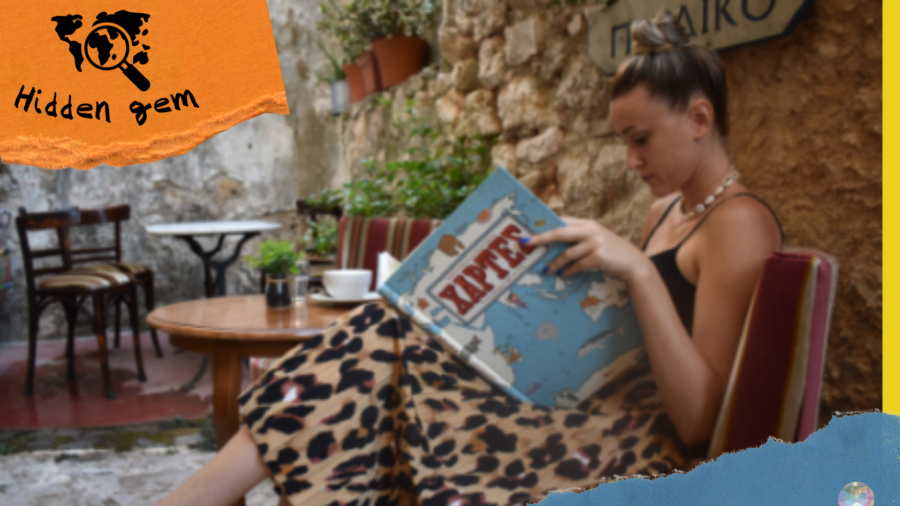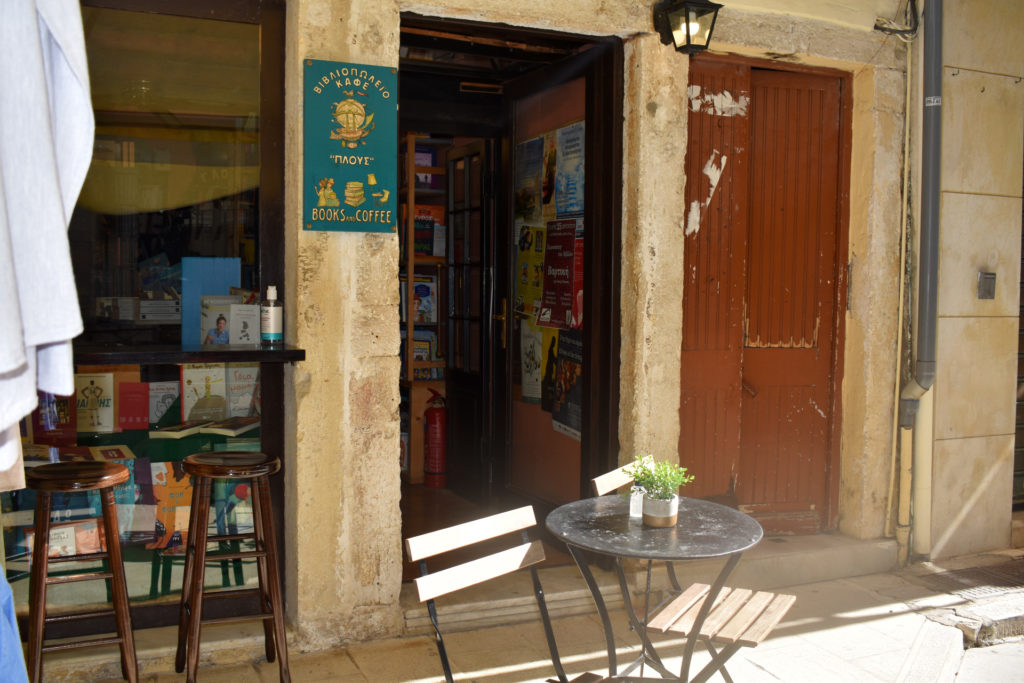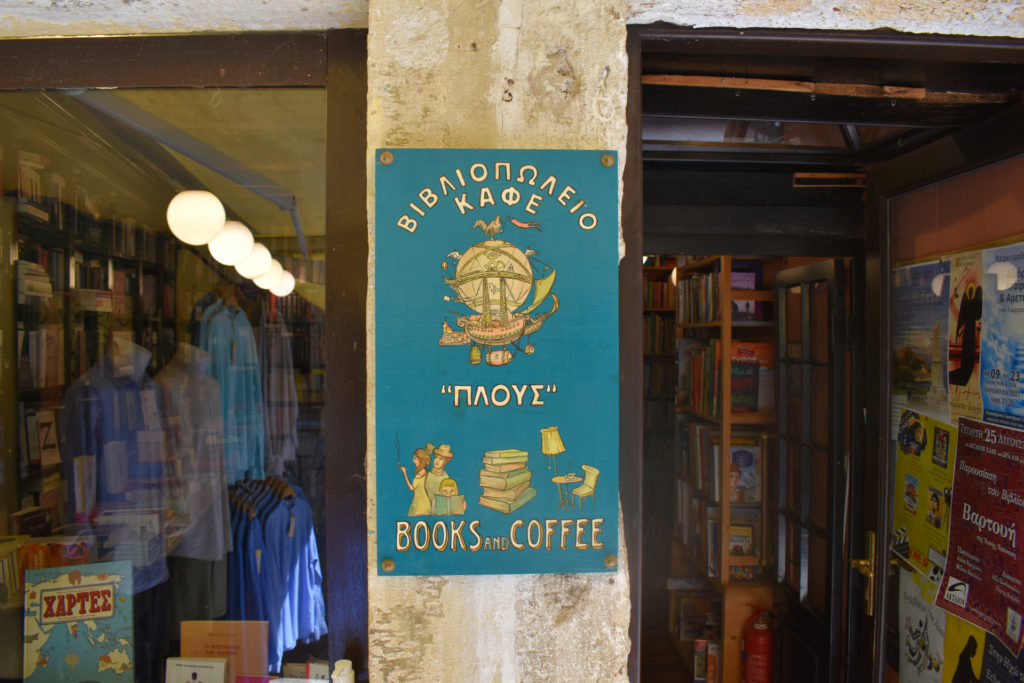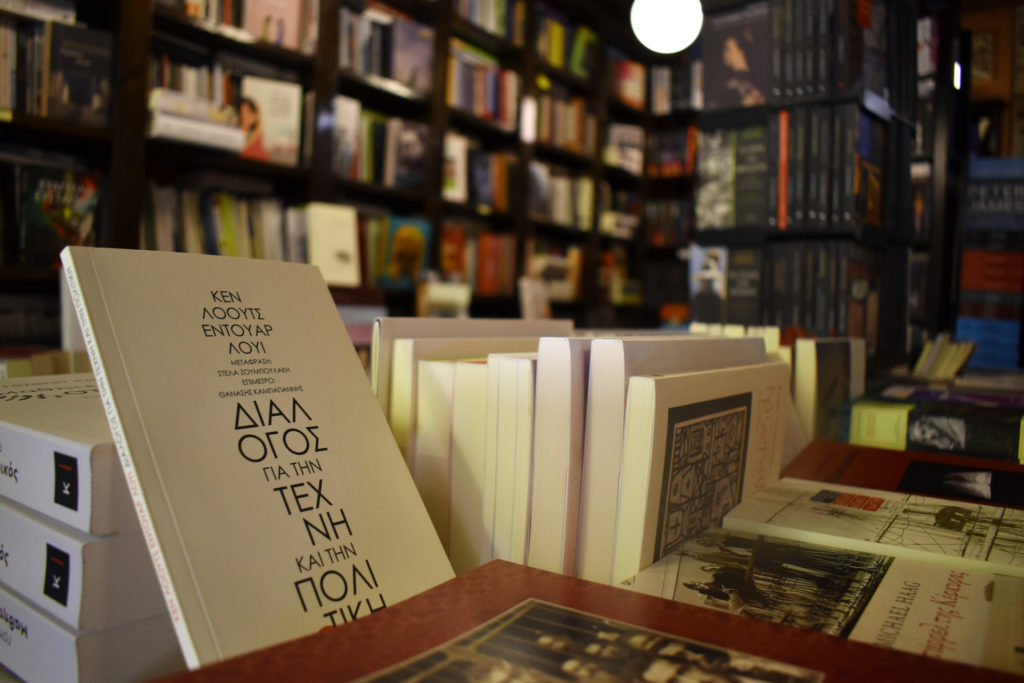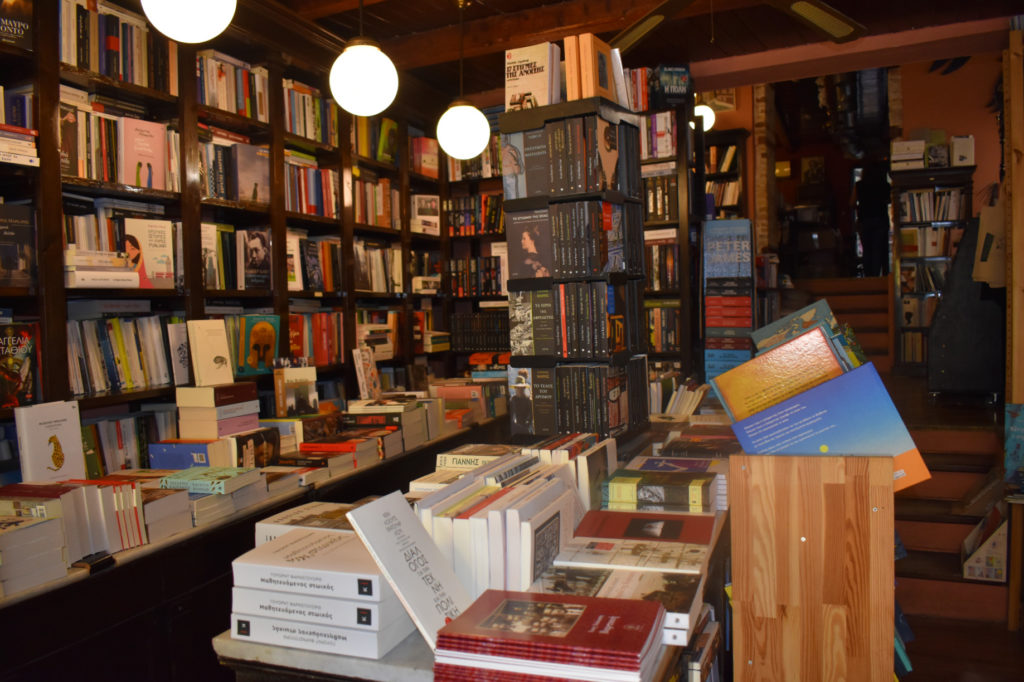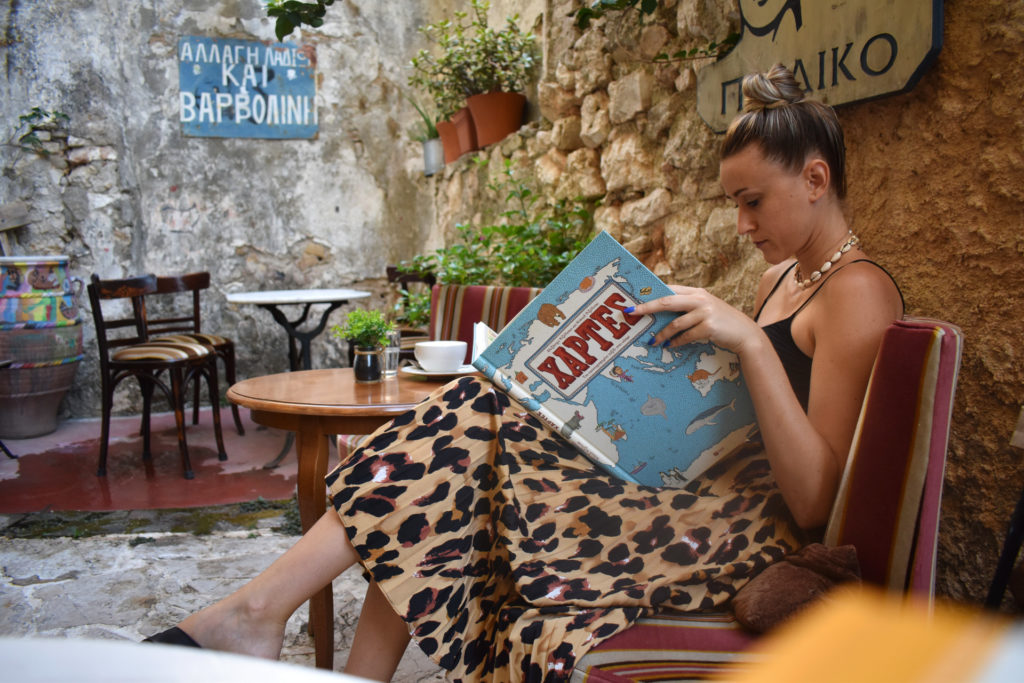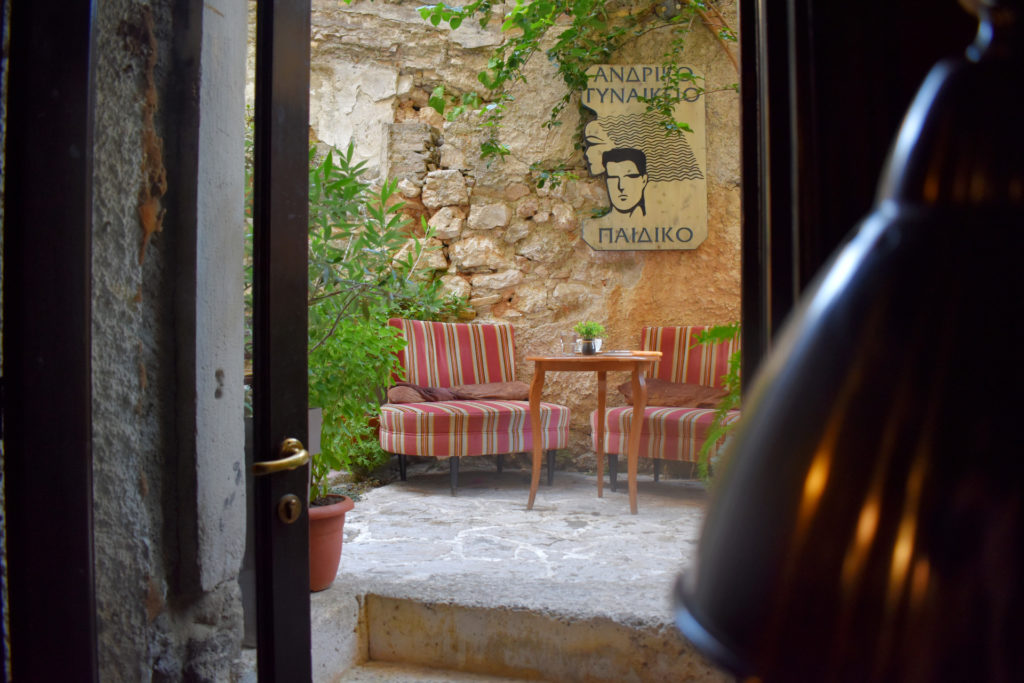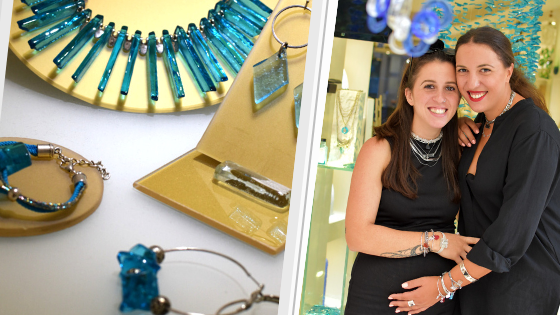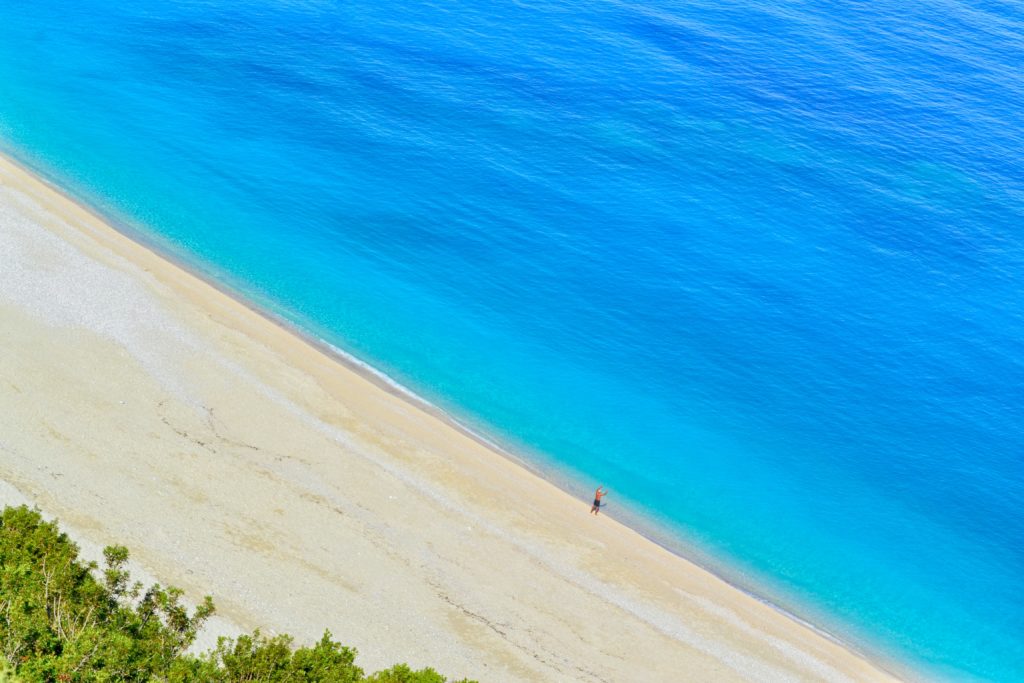It is one of those places that exudes an air of antiquity, genuine love for books but also intense cultural activity. The smell of books becomes one with that of coffee, transforming the space into what I personally call paradise on earth. “Plous Bookstore – Cafe”, the historic and unique pure bookstore in the city of Corfu. Whether you are a book lover or not, I urge you to put it high on the list of must visit on the island and visit it by buying a book that will forever remind you of your visit to thebeautiful island of Corfu.
A few words about its history
The bookstore opened its doors to an alley on Nick. Theotoki in November 1987 by Michalis Tsirigotis, lover of books, history and everything old and designed by Maria Metropia. The center of the store becomes a counter that was “saved” – among other furniture – from the renovation of one of the oldest pharmacies on the island, which you can still admire inside the bookstore. Plous journey begins …
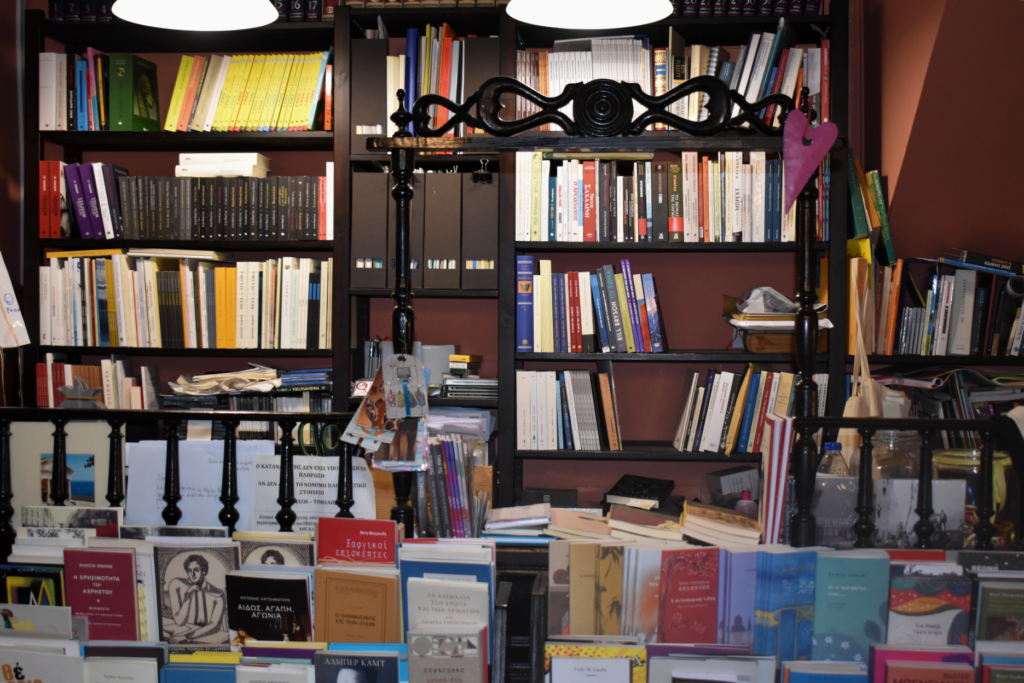
In 1992, it passes into the hands of Urania, Demosthenes’ mother, the current owner, and the journey takes a different turn. Plous becomes a meeting center for intellectuals and book lovers, one of the first bookstores in Greece that organizes cultural events, photography and painting exhibitions, book presentations and Corfu promotion activities.
Important people of art and spirit, writers and musicians have passed the door of Plous. Names such as Theodoros Angelopoulos, Alki Zei, Freddy Germanos, have been hosted in the area, turning the small bookstore into a “huge” treasure of culture.
The creation of the cafe
In 2008 Plous moved to his current location, Nick. Theotoki where the constant gathering of friends and visitors, makes the need to create a space of “acquaintance and discussion” more imperative than ever. After all, Plous had established itself through its actions as a nest of culture, something much more than a simple bookstore aimed at sales.
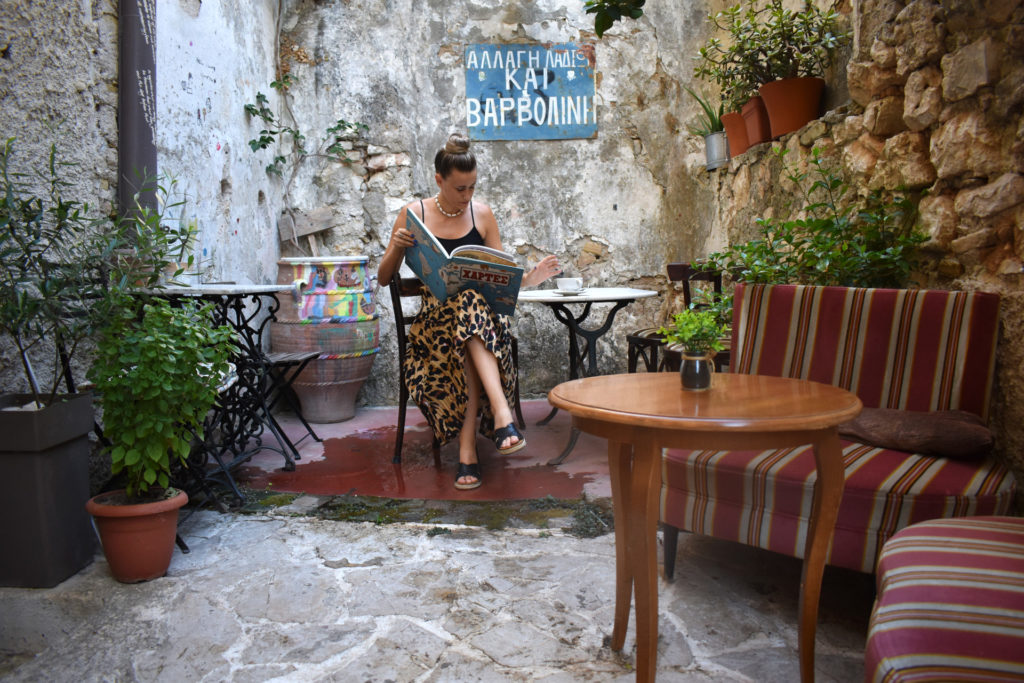
And this is how the cute cafe was created inside but also in the small yard at the back. A few tables, some souvenirs of old Corfu and a lot of love for books, become the ideal place to enjoy a cup of coffee from the hands of Konstantina, Demosthenes’ wife.
Why “Plous”?
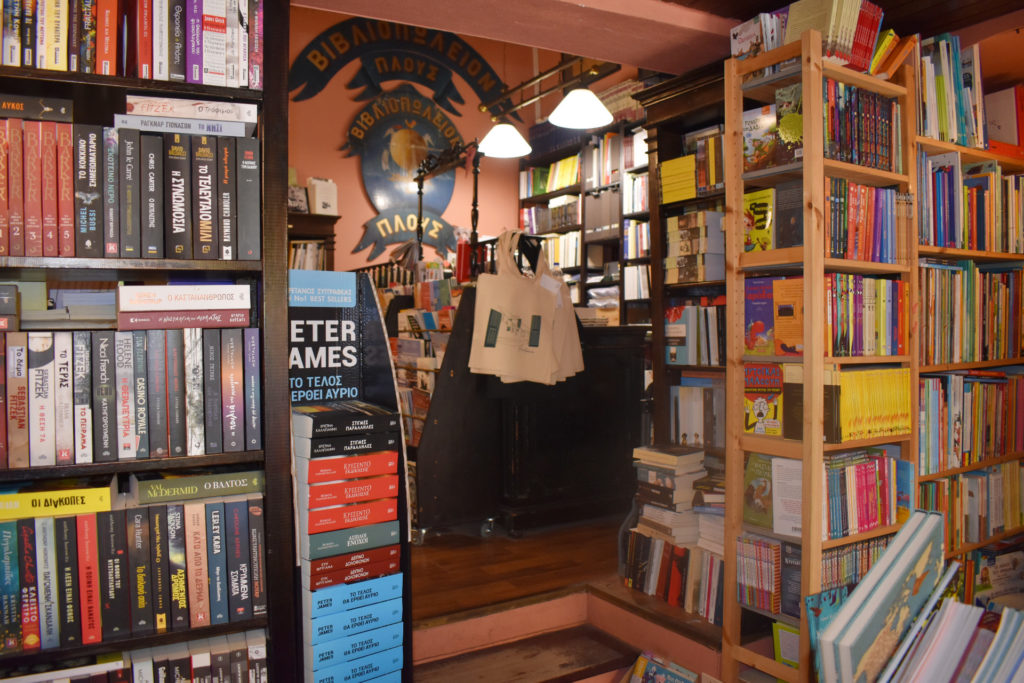
But what does the name Plous mean and where did it come from? The name Plous was taken from a narrative by Andreas Empirikou called “Argo i Plous Aerostatou”. Although not the bookstore’s original brand, the final design was taken from the Minerva balloon, designed by Frenchman Etienne Robertson, which would transport 60 meteorologists and astronomers around the world. The balloon would carry a fully equipped observatory, a reading room for the sages and a banner. Minerva never made it to reality.
Using this design, Plous wants to remind us that imagination is vital to man, even if some of our imaginary designs never come true.
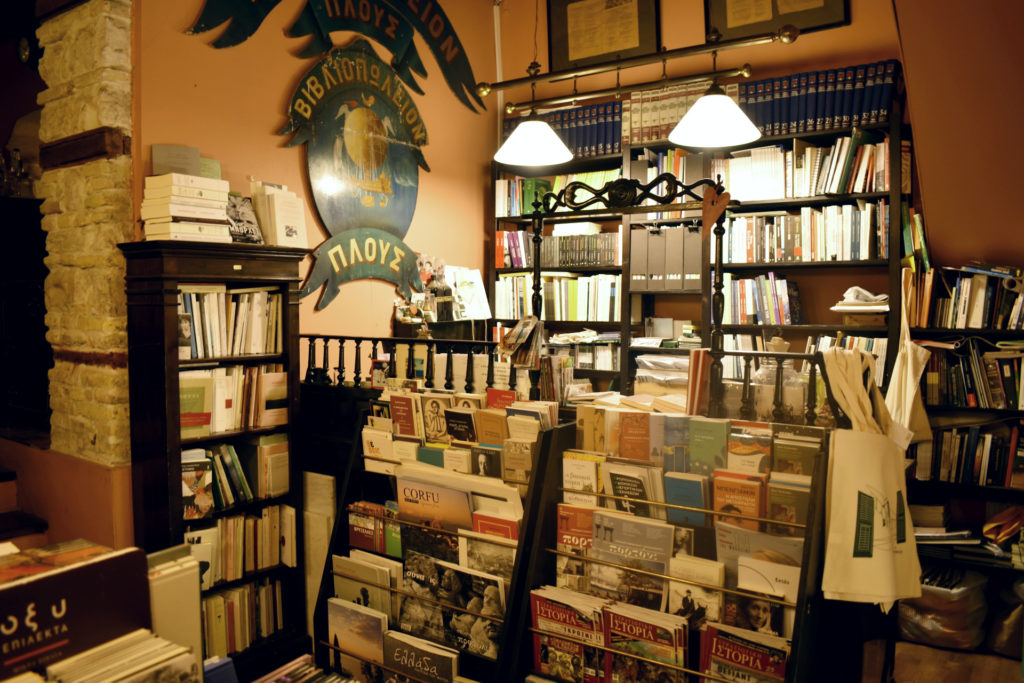
Plous nowadays
In the bookstore you will find a large collection of Greek and World Literature, new releases but also classic works, books of all subjects and of course children’s books. There is a special love in the local publications (among others, Porphyras, Portoni,) in which modern Corfiots participate since the place is an inexhaustible source of History and Culture for creators.
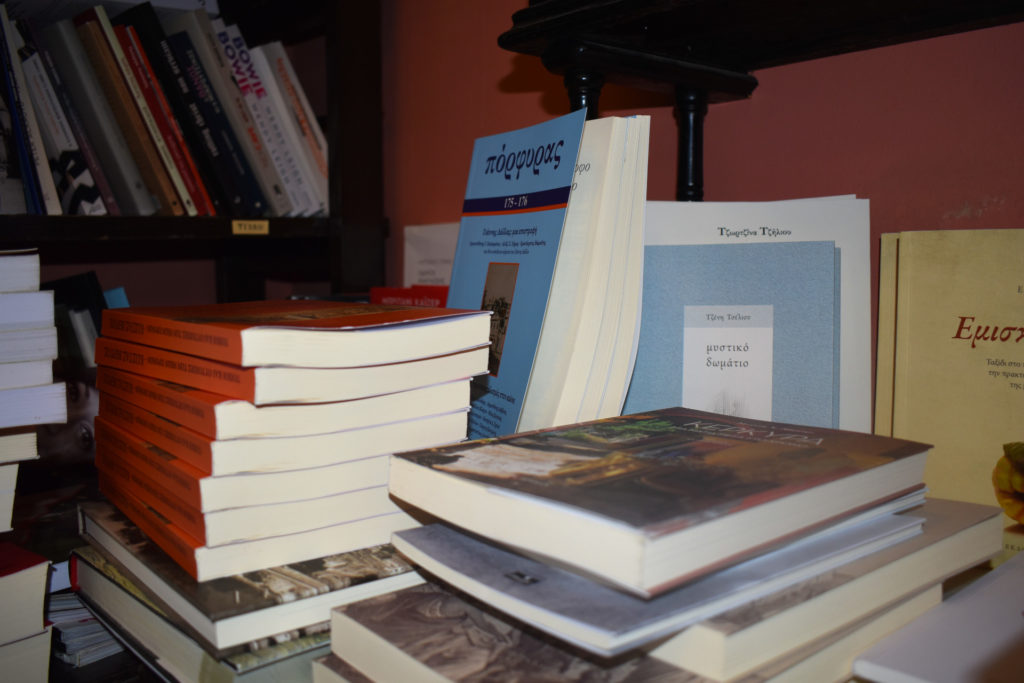
A short conversation with the owner, Mr. Kalakos
Bookstore owner. How is this profession?
– I do carry a lot! (laughs) … but the book is a way of life and so many emotions, it is not just a job. There were always books in my house, I grew up among books, I can not be away from them. There are of course the technical, work issues, like any business, but the environment and the nature of the profession is such, but also the people we have met over the years that everything becomes much more enjoyable.
What does “Plous” mean to you?
– Plous was and is all about its people. It is a bookstore – a meeting place for art lovers, a living organization in which we try to maintain the old glamor of bookstores, but also attract new “friends”.
Favorite book:
-At the moment I am reading Luis Sepúlveda’s “Patagonia Express” and I am really excited, I consider him the best author ever. Another book I love is “Dog Heart” by Mikhail Bulgakov.
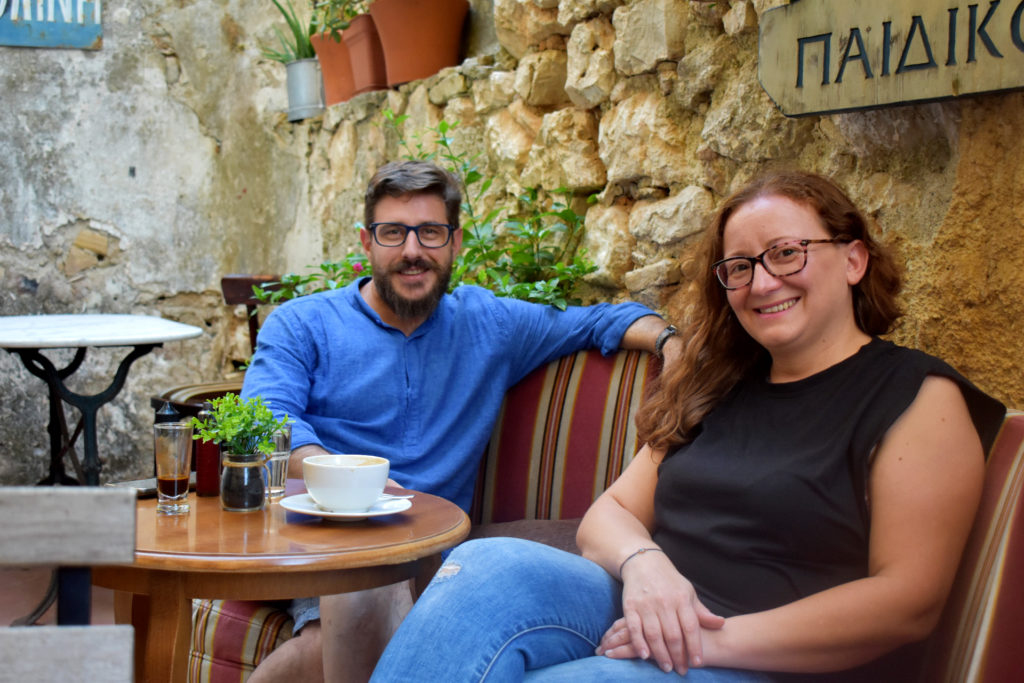
Is there such thing as good and bad literature?
-Our daily life is difficult and many times people just want to relax with a book, and not just to “level up” as a reader. For me, it is pleasant if someone chooses a book, whatever book it is, than scrolling on social for hours or fooling around on TV. And once that choice is made, it is a step towards staying in the book space and perhaps in time being able to choose for oneself or understand when some kind of literature no longer covers one.
But there are the so-called classics. Works from time immemorial that deal with issues that always remain relevant. But even these works, whose value has been confirmed over the years, in many cases even the reader’s psychology or a bad timing, can cause them not to be appreciated. In any case, a book is better than no book.
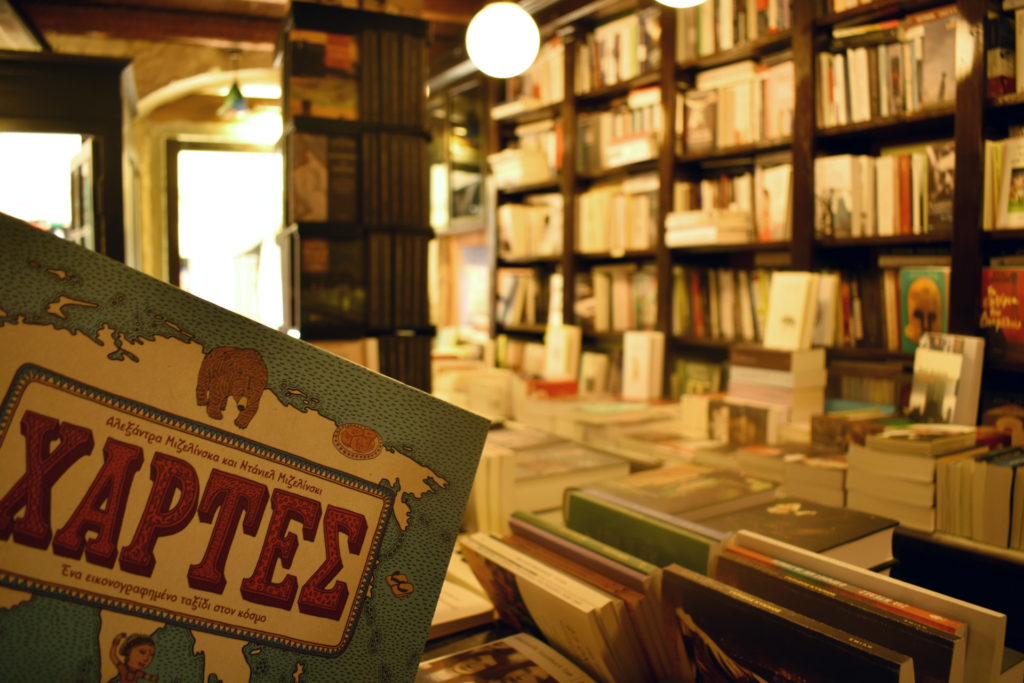
Did people return to books during the pandemic?
Love for the book was touching during the quarantine period and this unfortunately proves to us how the lack of time in modern life keeps us away from reading.
Do young people read?
If they grow up in a book-loving environment, they get the perfect foundations. The children’s book is always high in sales, which proves to us that children start reading but unfortunately many of them stop somewhere in the High School where the book whole reading thing becomes a means of grading, a compulsory task. Unfortunately, there is not enough care from the State in our Educational System for literary reading. Many schools no longer even have libraries. Imagine if there was a lesson in which the student would simply read his favorite book? So simple. Last hope lies on some enlightened teachers in schools, who incorporate books into their lessons.
Does a small bookstore survive in the times of department stores and online shopping?
The pure bookstores, which should not exceed 50 in number, throughout Greece, obviously face difficulties against the giants of recent years, however I believe that some will survive mainly due to the interpersonal relationships they develop with their customers. Fortunately, there are also conscious consumers and fans of the classic bookstore concept who will continue to support them.
What was your last event?
Lately we have returned to the publishing industry. We are interested in the works that promote our island, so if we can somehow put our stone in the creation, reprint and preservation of these works, then we do it through the publications of the Plous Bookstore. Our latest edition is a theatrical monologue entitled Vartoui, by Annie Nounesi, a special story by an expatriate Armenian grandmother, during the Genocide. A work that refers to what is unfortunately happening even today.
I want to thank Dimos and Konstantina for such an interesting discussion. May the voyage of Plous continues for many, many more years, with all of us as passengers but also many more young “travelers”
Evita



